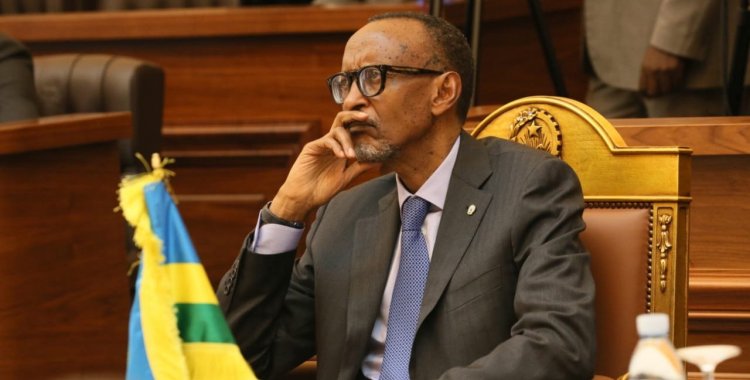In a statement released on the social network X, the Rwandan Ministry of Foreign Affairs and International Cooperation highlights that an agreement was not reached between the two countries at the ministerial meeting in Luanda on the eve of the tripartite summit, which was supposed to bring together the presidents of Rwanda, Paul Kagame, of the Democratic Republic of Congo (DR Congo), Félix Tshisekedi, and from Angola, João Lourenço, as mediator of the conflict.
The summit ended up not taking place as only Tshisekedi attended Luanda.
At issue, according to the Rwandan government's statement, are direct talks with the M23 armed group, allegedly supported by Kigali, to reach a political solution to the conflict in eastern DR Congo, a point on which there was no consensus at Saturday's meeting.
"Therefore, the summit would not have resulted in an agreement, particularly in a context of continued threats by the Congolese authorities, including the President, to achieve regime change in Rwanda, as well as the coalition of forces operating in the East of DR Congo together with the Congolese armed forces, including European mercenaries, the Burundian military, Wazalendo and the FDLR [militias fighting the M23]," the statement said.
Rwandan diplomacy emphasizes that "there must be serious actions to deal with the FDLR [Democratic Forces for the Liberation of Rwanda] in addition to the games that are being played around this problem.
According to the statement, the postponement of the summit allows time for the dialogue proposed by President João Lourenço (as facilitator of the Luanda process) and former Kenyan President Uhuru Kenyatta (as facilitator of the Nairobi process), between the M23 and RDCongo.
The Rwandan government highlights that there are actions that DR Congo can and should take "without continually using Rwanda as a pretext for doing nothing" and that Rwanda is available to participate in a summit that adopts "a concrete and serious path to resolve outstanding issues once for all".
Speaking to journalists, the head of Angolan diplomacy said that the agreement presented by João Lourenço for negotiation between DRCongo and Rwanda is negotiated "at 99 percent" and involves three issues, the first of which is related to the disengagement of forces, the second on the neutralization of the Democratic Forces for the Liberation of Rwanda (FDLR) and the third on the M23, an armed group that operates in eastern DR Congo and which Kinshasa says is supported by Kigali, which "has been the subject of disagreement between the parties".
According to Téte António, the last paragraph was negotiated at ministerial level on Saturday "until very late", and it was not possible to reach "a convergence of points of view".
The Congolese presidency blamed the Rwandans for the summit's failure, saying the annulment was due to the Rwandan delegation's refusal to participate in the meeting aimed at ending hostilities in eastern DR Congo by "withdrawing Rwandan troops from Congolese areas".
Last month, DR Congo and Rwanda had reached an agreement on a plan to neutralize the FDLR rebel group.
This is a fundamental step on the path to peace in eastern DR Congo, where dozens of rebel groups operate, as the end of the FDLR is a demand of the Rwandan Government, which collaborates with the March 23 Movement (M23), which is in conflict with the regular Congolese army.
In turn, Rwanda and M23 accuse the Congolese army of cooperating with the FDLR rebels, founded in 2000 by leaders of the 1994 genocide and by other Rwandans (Hutus) exiled in DR Congo, to regain political power in their country, collaboration also confirmed by the UN.
M23's armed activity was reactivated in 2022 after years of relative calm, and since then the group has advanced on several fronts to position itself near the city of Goma, on the shores of Lake Kivu, which it occupied for ten days in 2012.
Since 1998, eastern DR Congo has been mired in conflict fueled by rebel militias and the army, despite the presence of the UN peacekeeping mission in the country.







